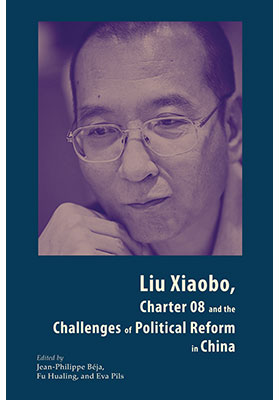Liu Xiaobo, Charter 08 and the Challenges of Political Reform in China
(劉曉波、零八憲章與中國政治改革的挑戰)
ISBN : 978-988-8139-07-1
June 2012
396 pages, 6″ x 9″, 2 tables
Ebooks
In December 2008 some 350 Chinese intellectuals published a manifesto calling for reform of the Chinese constitution and an end to one-party rule. Known as “Charter 08,” the manifesto has since been signed by more than 10,000 people. One of its authors, Liu Xiaobo, was awarded the Nobel Peace Prize in 2010 but has remained in prison since 2009 for subversive crimes. This collection of essays—the first of its kind in English—examines the trial of Liu Xiaobo, the significance and impact of Charter 08, and the prospects for reform in China. The essays include contributions from legal and political experts from around the world, an account of Liu’s trial by his defence lawyers, and a passionate—and ultimately optimistic—account of resistance, repression and political change by the human rights lawyer Teng Biao.
“This collection of deeply informed essays offers an extraordinarily rich, wide-ranging analysis of the many meanings of Charter 08 and Liu Xiaobo’s trial. It explains the historical meaning of Liu’s speech crime, the social and political contexts out of which his leadership emerged, and the features of the Chinese state exposed by the legal case against him. Liu’s place in history has never been so clearly revealed.” —Andrew J. Nathan, Class of 1919 Professor of Political Science, Columbia University
“Can a professor of Chinese, by peacefully promoting a rational statement of principles of government, shake the foundations of a state that enjoys growing power, boasts vaulting wealth, and rules more than a billion people? Many foreign observers believe not. They see the professor as a ‘dissident’ and his ideas as a tiny sideshow. But the rulers of that same state demonstrate by their actions that they see things quite differently. They throw the professor in prison for eleven years and expunge his statement from all public media. What do they understand that the foreign observers do not? This wonderful book, a collage of essays from experts writing from a number of angles, is the best single-volume source the world yet has on that important question.” —Perry Link, University of California, Riverside and co-editor of No Enemies, No Hatred: Selected Essays and Poems by Liu Xiaobo




